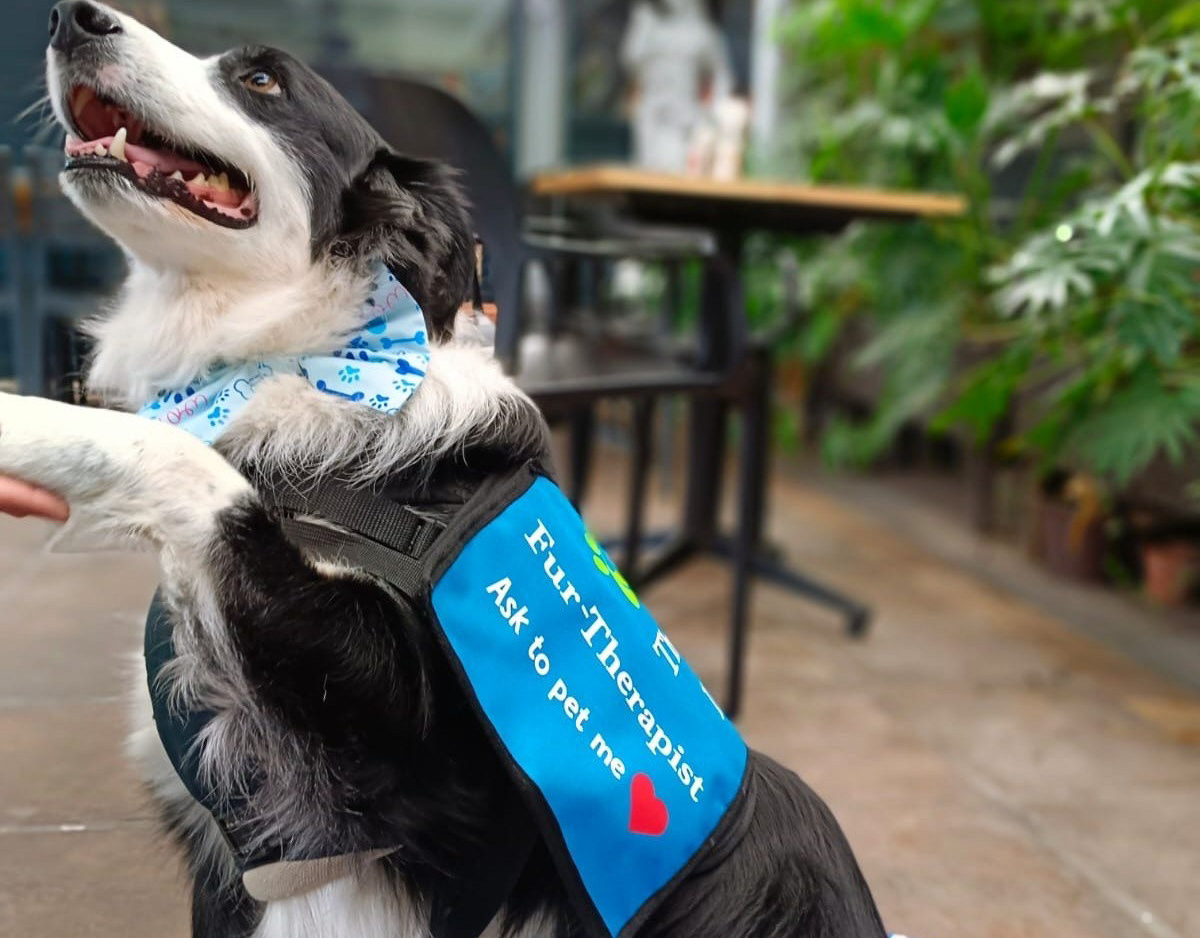


Type 1 Diabetes is an incurable, chronic and life-threatening condition that affects over 350,000 children and adults in South Africa, and over 18 million people worldwide. Type 1 diabetic people cannot produce insulin from their pancreas due to an autoimmune condition. This means that blood glucose level control has to be done manually, which is not an easy task, especially for mothers with type 1 diabetic children. Food intake and exercise has to be carefully monitored in order for these children, and adults to lead a normal life, but even then, there are many uncontrollable factors that affect the glucose levels in the blood. Sleepless nights and constant monitoring of blood glucose can be extremely stressful for anybody living with diabetes. The use of insulin pumps and injections becomes a part of daily life in order to avoid blood glucose levels dropping or rising to unhealthy levels.
Diabetic Alert Dogs (DAD) are trained to alert diabetic handlers, in advance, of low or high blood sugar events, before a dangerous situation can occur. By using their incredible sense of smell, these dogs can sniff out any changes in their owner’s glucose level up to 30 minutes before a blood glucose monitor, giving the owner’s time to alter their artificial insulin level or sugar intake before symptoms occur.
Dogs have over 200 million sensors in their noses that can smell individual scents at 1 part per trillion. Rapid changes in blood sugar levels are expressed in a person’s breathe and skin. Diabetic Alert Dogs are trained to associate this change in scent with a reward, and be persistent about receiving it! They have prevented thousands of glycaemic episodes across the world and changed the lives of children and adults everywhere.
Companion Animal Psychology UK has studied the psychological benefits of owning a DAD and found that owners experienced significantly less hypoglycemic episodes, reduced paramedic call outs, improved independence and even described having a DAD as “an enhanced quality of life”. The psychological advantages of having a service dog are second to none. The alert itself becomes especially important for people that have developed hypoglycemic unawareness and aren’t able to recognize the changes on their own. People who sleep heavily and struggle to wake up to check glucose levels at night, often have trouble falling asleep at all, due to fear of missing an alarm. This decreases focus during the day at work or school. Parents of type 1 diabetic children also have sleepless nights of worry and have to constantly monitor their child. The added benefit of a Diabetic Alert Dog is that they can be trained for night time alerts.
Although they will never be a replacement for current protocols, checks made by a Diabetic Alert Dog can certainly be an extremely beneficial, added safety net. They can bring a sense of independence and comfort to anyone suffering with the disease, as well as being a long term friend and companion. Living with a DAD can bring so much comfort to a busy household with a type 1 diabetic child; it is an added layer of protection for unpredictable changes in blood sugar that happen on a daily basis. It is important to mention however, that it is never the dog’s sole responsibility to alert owners, and that usual monitoring must continue to be used.
Honeys Garden is a nonprofit, 2016/387235/08 organization whose mission is to place quality service dogs with people within South Africa who are under privileged, fighting with disabilities or diseases, and veterans who have lost use of limbs or hearing. We also help with animal rescue, and educate the public regarding use of service dogs in public places.
How To Help





